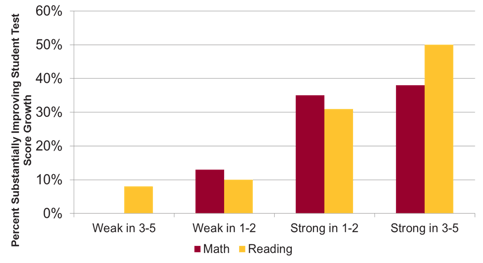
How can we as leaders ensure that our early childhood programs are providing the highest quality care to our children?
Even before the pandemic, we asked ourselves this question often. Our search for a way to support teachers and continuously improve the quality of our programs led us on a journey culminating in the implementation of The Essential 0-5 Survey in Jefferson Parish, Louisiana.
The Jefferson Parish Early Childhood Collaborative focuses on providing intentional professional development to support teachers and leaders. Our PD typically focuses on day-to-day interactions between teachers and children inside the classroom, and for directors, it focuses on team support, assessment of children, and behavior management strategies. Before we implemented The Essential 0-5 Survey, we did not offer any professional development that focused on the organization as a whole.
The Essential 0-5 Survey, developed in partnership by Start Early and the University of Chicago Consortium, is a measurement system that provides insight into the strength and weakness of organizational climate for individual programs.
At this year’s Teachstone Interact CLASS Summit, we’ll partner with Stuart Lassiter, an early childhood practice consultant at Start Early, to share the innovative research and framework behind The Essential 0-5 Survey, and our experience implementing it in Jefferson Parrish. During our session – Strengthening Organizational Conditions through Collaboration and Data – we’ll show why it is vital to measure both parent and teacher/staff perceptions in order to provide program directors a holistic understanding of their programs’ strengths and weaknesses.
The Essential 0-5 Survey is rooted in decades of research from the University of Chicago Consortium and their 5 Essentials framework focused on K-12 education. Research demonstrates the impact organizational conditions have on program quality: a program strong in three of the five essentials is ten times likelier to substantially improve student engagement and achievement in math and reading (see graph 1).

Graph 1
In Jefferson Parish, we hope that our implementation of The Essential 0-5 Survey will not only provide a greater knowledge of our programs’ organizational environments, but also empower leaders, teachers, and families to collaboratively make improvements so that our children have the best chance to thrive.
Want to learn more? Check out startearly.org/theessentialsurvey or watch this case study about The Essential 0-5 Survey in action.
Dr. Stricklin serves as the Director of the Jefferson Early Childhood Network supporting leaders of publicly funded programs in south Louisiana. She has worked in early education for over 30 years as a teacher, administrator, trainer, coach, and consultant. Currently, she leads a broad coalition of thought partners who are collaborating to increase access to high quality early care and education across neighborhoods in Jefferson Parish Louisiana.
